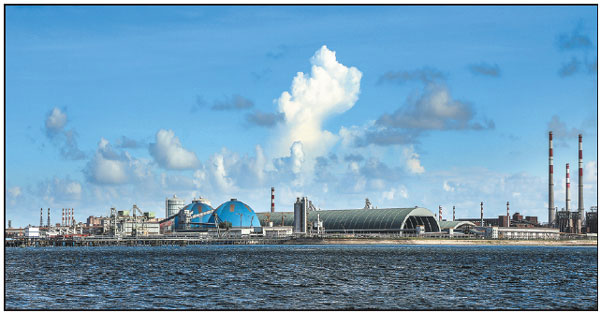From hard times to the age of affluence
He Ming, 70, is one of the residents in Zhanjiang who experienced a poor and difficult time and witnessed the rapid development of the country.
"The kids were dressed in rags and had little to eat in my childhood," He said, according to a report by Zhanjiang Daily. "In my memory, I didn't even have pants before school-age and was covered by parts of mosquito net, which was handmade by my mother."
His aunt gave him a pair of shorts when he was eight years old, which he cherished and took off after school, He recalled with tears in his eyes.
Born in 1949, the same year as the founding of the People's Republic of China, He retired from the Zhanjiang federation of trade unions 10 years ago.
"Now farmers can live in their own beautiful buildings. The lives of people have been dramatically improved and our country is getting strong and prosperous," He said.
Talking about his hometown, he said the city has sped up its development pace. "High-speed rail finally reached Zhanjiang last year and the gross domestic product of the city surpassed 300 billion yuan ($42.1 billion) for the first time," said He.
He noted that city's growth can be explosive given its advantageous geographic location, abundant natural resources and the incentive policies from the central and provincial governments.
Lin Yongqiang, also 70, shared the same confidence in the future of Zhanjiang.
As a retired worker from a local aquatic company, Lin said the food can reflect the great changes the city has experienced over the past 70 years.
"When I was seven or eight years old, my family had to rummage for the small sweet potatoes left in the fields for food after harvest and ate their leaves," Lin said. He added that food shortages became worse at the end of the 1950s and beginning of the 1960s. Many people were starving.
When he started working for the aquatic company in 1971, people could hardly have fresh seafood without proper preservation technology, he said. Fish was sold after heavy salting. With the development of the preservation technology and cold-chain logistics, local seafood could be sold abroad.
"People's lives have been closely connected with the development of our country. Our economy has grown fast and the food on dining tables is getting more abundant," Lin said.
 |
|
The Zhanjiang branch of Baosteel, one of China's largest steel makers. Zhang Fengfeng / For China Daily |



 Print
Print Mail
Mail

